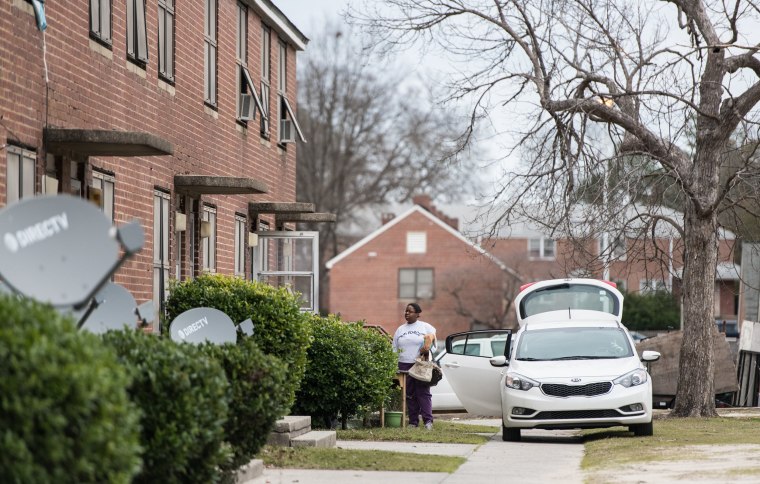The House Appropriations Committee has proposed a $25 million grant program for installing carbon monoxide detectors and remediating other health hazards in public housing.
The proposal comes in the wake of news reports on dangerous public housing conditions, including a monthslong NBC News investigation into the lack of carbon monoxide protections in homes overseen by the Department of Housing and Urban Development.
“Carbon monoxide is a widespread hazard — perhaps more widespread than we had known,” said Rep. David Price, D-N.C., the committee’s head of housing and transportation. Every public housing authority “ought to be paying attention to this as a possible hazard, and now there is a federal program that encourages and helps them,” he added.
Under the newly proposed program, local public housing authorities will be able to apply for federal grants to install carbon monoxide detectors, combat mold and remove asbestos, among other environmental health hazards, according to a draft budget proposal for fiscal year 2020 released Wednesday by the committee’s Democratic leadership.
At least 13 residents of HUD properties have died of carbon monoxide poisoning since 2003, according to an NBC News investigation, but HUD does not currently require detectors in any of the properties where more than 4.6 million low-income families live. HUD says it plans to move forward with a new rule requiring detectors, but the agency has not released a proposal, and it could take months before one is enacted.
If approved by Congress, the new grant program would be in addition to the $5 million that HUD recently said it would dedicate to carbon monoxide detectors in public housing. Under both initiatives, only local housing authorities can apply for the new grants, not private owners or landlords.
The new $25 million program is part of the House committee’s broader proposal to increase spending on the Public Housing Capital Fund, which is dedicated to developing and modernizing public housing across the U.S. The draft bill would raise spending on the capital fund by $80 million above the $2.775 billion enacted in last year’s budget. The Trump administration has proposed eliminating the fund altogether.
Price’s subcommittee is formally considering the draft budget on Thursday, after which it must go through the full House Appropriations Committee, then the House.
The House Appropriations Committee is also proposing $11 million in additional funding for HUD’s Office of Lead Hazard Control and Healthy Homes. That office allows state and local governments, as well as nonprofit and for-profit firms, to receive grant money for combating health hazards in housing, including carbon monoxide, but HUD does not award them directly to individuals. Public housing authorities also cannot participate in the program.
Federal investment in public housing as a whole has declined drastically over the past two decades, raising concerns that newly proposed requirements like carbon monoxide detectors could squeeze housing authorities already struggling to repair and maintain crumbling facilities.
Adrianne Todman, CEO of the National Association of Housing and Redevelopment Officials, welcomed the 2020 budget proposal from the House committee and said she was “particularly glad” to see the funds specifically dedicated to addressing residents’ health and safety needs.
Emily Benfer, a visiting associate clinical law professor at Columbia University, agreed.
“This is a critical step to ensuring that public housing will not be the source of asthma, lead poisoning, cancer or death,” Benfer said. “Especially in light of the risk of carbon monoxide poisoning and the recent and tragic loss of life in public housing, Congress' investment in the health and well-being of residents is critical.”

